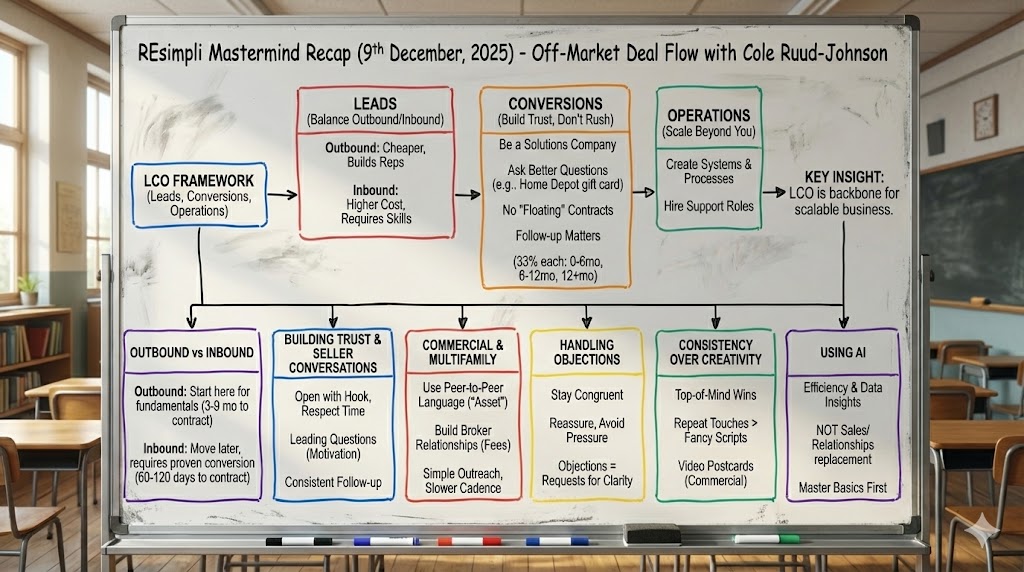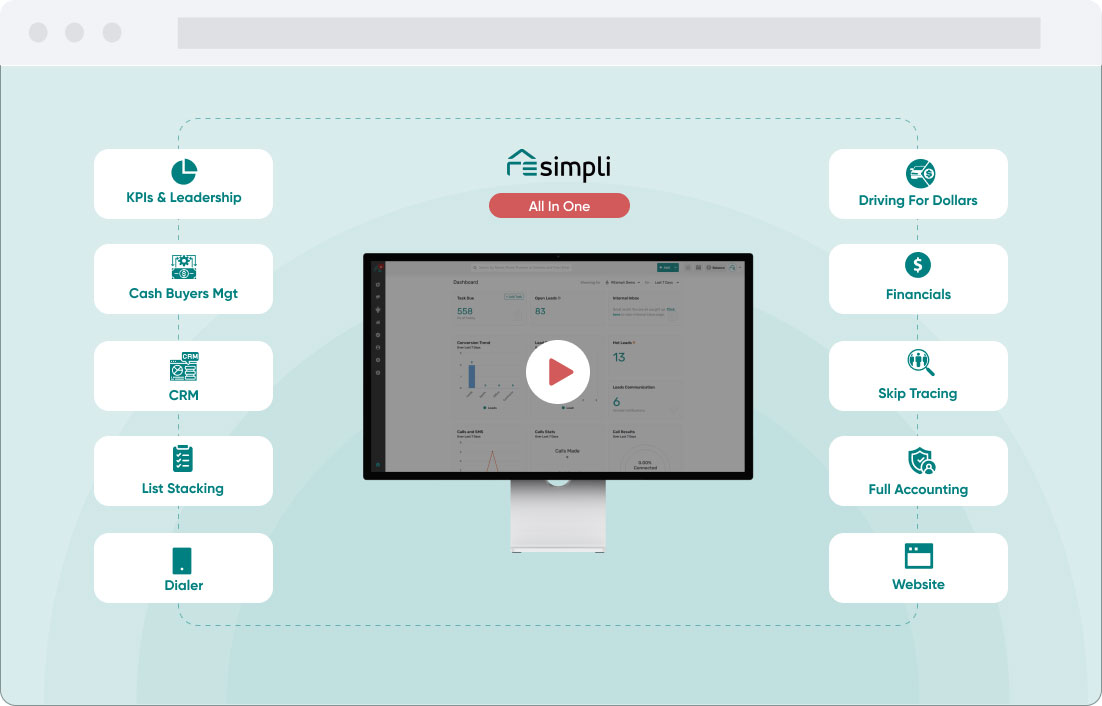Real Estate Investing During a Recession: How to Adapt
Introduction
Recessions test every investor. While some retreat and wait for better conditions, the most successful real estate investors adapt, adjust their strategies, and come out stronger.
Real estate remains one of the most reliable ways to grow wealth over time, but only if you know how to pivot during an economic downturn. This guide explores how to invest wisely during a recession, which strategies offer the most protection, and how REsimpli helps you manage risk and stay consistent even in uncertain markets.
Is Real Estate a Safe Investment During a Recession
Yes, but only when you shift from speculation to fundamentals.
According to recent insights from SmartAsset, MRI Software, and RealWealth, real estate performs best in a recession when you:
- Focus on steady cash flow
- Avoid risky flips or speculative appreciation plays
- Stay liquid and lean in your operations
- Invest in markets with stable demand
- Use systems that track your deals, marketing, and expenses in one place
Key Principles for Recession-Proof Investing
Prioritize Cash Flow Over Appreciation
Appreciation slows or stops during a recession. Your safety net is the monthly income your property generates. Buy only properties where the rent covers:
- Mortgage
- Taxes
- Insurance
- Maintenance
- Vacancy allowance
- Property management fees
Use REsimpli to underwrite each deal conservatively and track income and expenses per lead.
Invest in Affordable Markets
Midwestern and Southern markets continue to outperform during downturns. Indiana, Ohio, Kansas, Alabama, and parts of Texas have:
- Strong rent-to-price ratios
- Stable job bases in health, education, and logistics
- Lower acquisition costs and less competition
Pull absentee or high equity lists from these markets using REsimpli and run targeted direct mail or SMS campaigns.
Hold for Long Term Stability
Flipping in a recession can still work, but exit timelines may stretch. Focus on deals that work as rentals if your flip does not go as planned.
Build a pipeline of leads in REsimpli that includes:
- Properties you can wholesale or flip quickly
- Properties you would be comfortable holding for two to five years
- Creative finance leads where you do not need bank funding
Build Strong Reserves
The investors who survive are not always the most aggressive. They are the ones who stay liquid.
If you usually buy with private money or hard money, ensure your reserves can cover at least:
- Three months of holding costs per deal
- Emergency maintenance expenses
- Marketing for consistent lead flow
Use REsimpli’s campaign reporting to track ROI and pause any underperforming channels to protect your capital.
Use Recession-Friendly Deal Structures
Creative finance becomes more powerful during a downturn. Sellers are more flexible, and traditional financing gets harder.
Common recession-friendly strategies include:
- Subject to deals with existing low-interest mortgages
- Seller financing with flexible terms
- Lease options when sellers want to delay full exit
Use REsimpli to build deal templates, attach custom disclosures, and track seller responses with clear status updates.
What Property Types Hold Up Best During a Recession
According to MRI Software and Trion Properties, the most recession-resilient assets include:
- Single-family rentals in working-class neighborhoods
- Small multifamily properties with value-add upside
- Self-storage facilities
- Assisted living or group homes
- Manufactured housing parks
Avoid high-end flips, large spec homes, and assets that depend on luxury demand.
How REsimpli Helps Investors Stay Recession Ready
Whether you are adjusting your acquisition strategy or doubling down on follow-up, REsimpli helps you stay focused on what works.
Use REsimpli to:
- Tag leads by deal type and risk level
- Set follow-up sequences for cold leads that may become motivated later
- Track KPIs like cost per lead and cost per contract
- Filter campaigns by state or city performance
- Stay organized with all notes, tasks, and contracts in one system
This is the difference between operating like a business and reacting like a hobbyist when the market shifts.
Conclusion
Real estate investing in a recession is not about fear. It is about clarity. With the right strategies, a strong CRM, and a clear plan to prioritize cash flow and efficiency, you can build a portfolio that thrives even in tough economic cycles.
Adapt your offers. Protect your time. Watch your numbers. And let REsimpli help you do it all from one place.
FAQS
Yes, if you focus on cash flow, low-risk markets, and deals that work even if prices drop. REsimpli helps you evaluate and track them all.
Not completely, but only flip deals with clear, fast exit plans or those that work as rentals if needed.
Look for high-equity, motivated sellers and properties in affordable, high-demand rental areas. Use REsimpli’s tagging system to segment accordingly.
Use an all-in-one system like REsimpli to manage leads, analyze deals, track follow-ups, and measure campaign ROI in one dashboard.
Yes. Use tags, custom fields, and document storage to manage Subject-To deals, seller financing terms, and lease options with full visibility.



